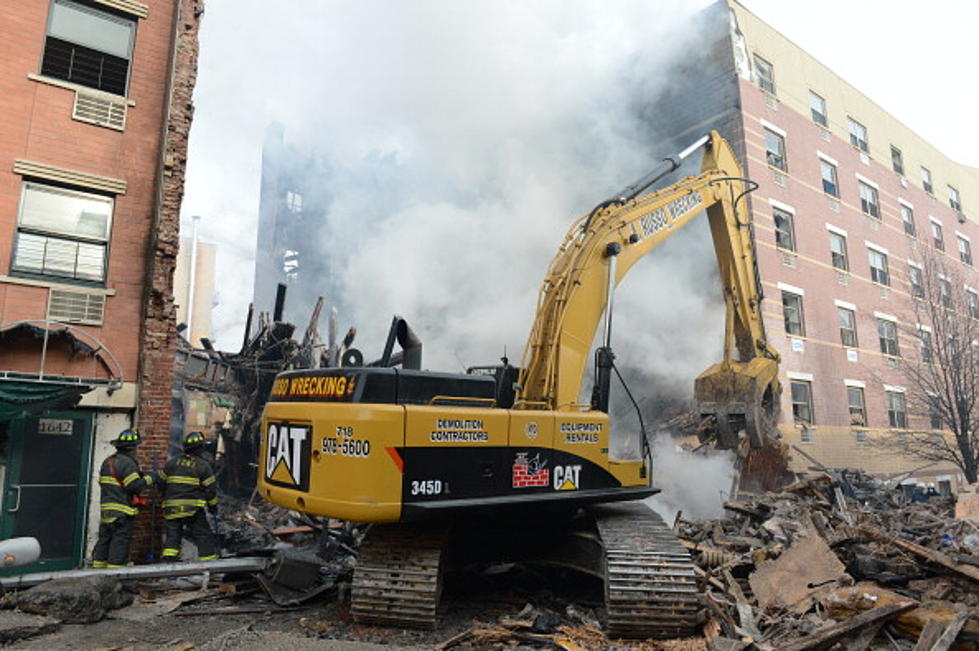![The Dangers of Gas Lines [AUDIO]](http://townsquare.media/site/385/files/2014/03/Explosion5.jpg?w=980&q=75)
The Dangers of Gas Lines [AUDIO]
As officials in Ewing Township continue to investigate a gas line explosion that killed one woman, injured several people and leveled 22 townhouses last week, officials in New York have launched a probe into a gas explosion in East Harlem yesterday that destroyed two buildings and caused several serious injuries.
According to Dr. Jenahvive Morgan, professor of engineering at Rowan University, gas companies in New Jersey and across the country are constantly checking their infrastructure for signs of corrosion.
"It creates these weak points, and then you've got a high pressure gas that's running through," Morgan said, "and so if you have a corroded spot, that weak part starts to wear away and then you can have a leak."
She said external groundwater may contain elevated levels of salt that can act as an electrolyte, causing a reaction on the external edge of a pipe that may lead to corrosion. Companies do make conscious efforts to combat that problem.
"Gas companies survey their lines, checking for leaks and corrosion, using sensors called 'smart pigs' -- it runs through the pipeline and it measures the thickness of the wall pipe, and it gives you a reading of how you're doing," Morgan said.
She said if there is a corrosion problem, the utility companies are usually pretty good about fixing it right away.
"They wouldn't put it off, because it's going to be a lot worse on them if there is an explosion," Morgan said. "No company wants to have something like that on their hands; lives are lost and it does not look good for the gas company."
The professor also said that state officials have the responsibility to oversee how the gas companies take care of their lines.
A spokeswoman for PSE&G said regular checks of its pipeline systems are made for corrosion year-round.
In a statement, PSE&G said:
We have test stations located below ground across our entire system, and we proactively test and measure our pipeline facilities on a regular schedule. We have surveys where we patrol our system throughout the year to make sure there are no leaks or corrosion. We walk all of our services on a three-year schedule in the spring, summer and fall to test each part of the system for leaks and corrosion.
PSE&G responds to reports of gas leaks 24 hours a day, within 60 minutes, to make the area is safe and to repair our infrastructure. We also run constant leak surveys, focusing in particular on the areas where our cast iron mains are located. PSE&G systematically and proactively educates emergency responders on safe practices for preventing and responding to gas emergencies. PSE&G also actively promotes safe digging through its Partnership for Damage Prevention, the 811 service.
More than 50 percent of American homes are heated with clean natural gas. While all fuels should be handled with care, PSE&G has an excellent record of protecting the safety of its employees and customers."
More From New Jersey 101.5 FM


![Benefit to Help Ewing Explosion Victims [AUDIO]](http://townsquare.media/site/385/files/2014/03/ewing-home-5.jpg?w=980&q=75)






